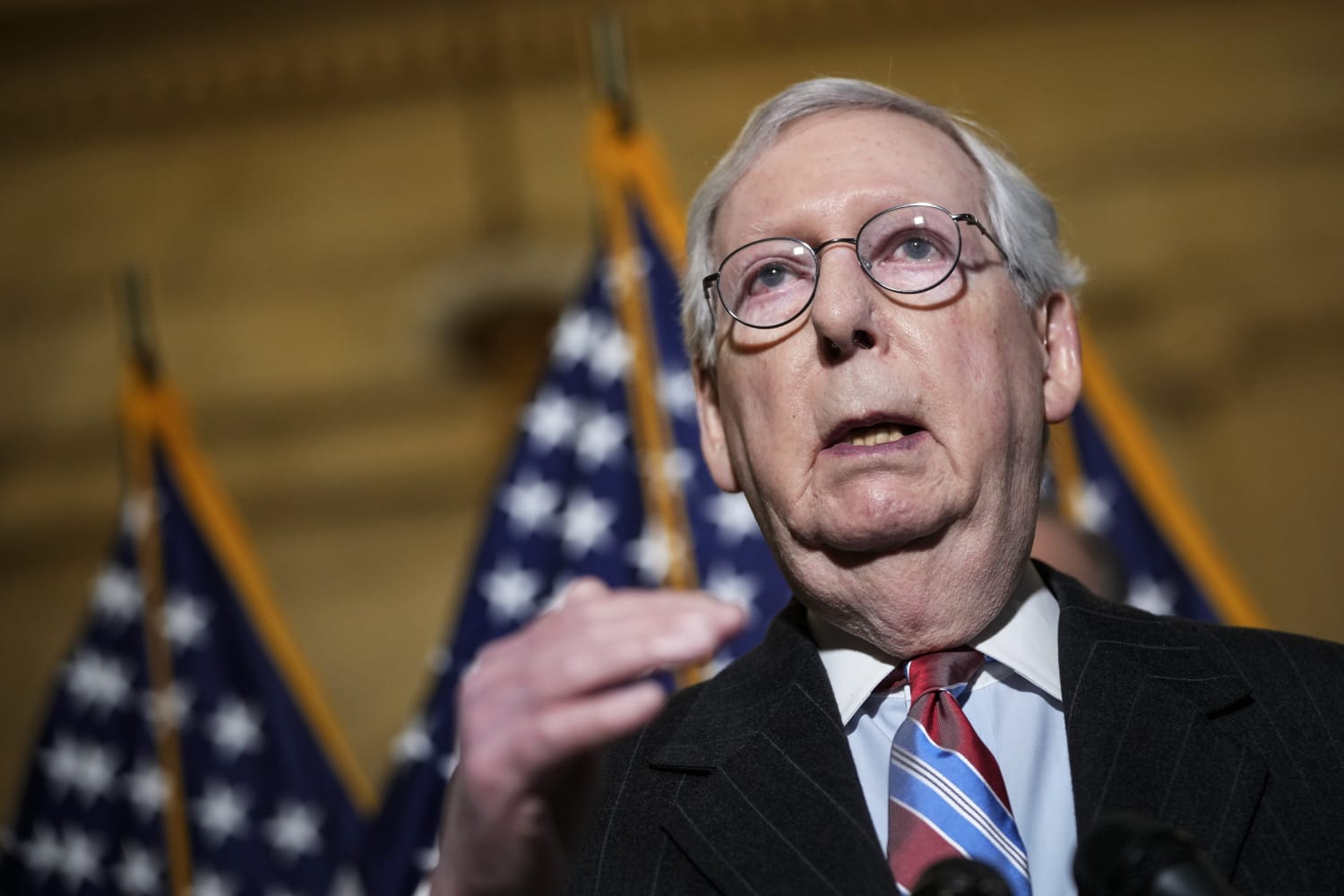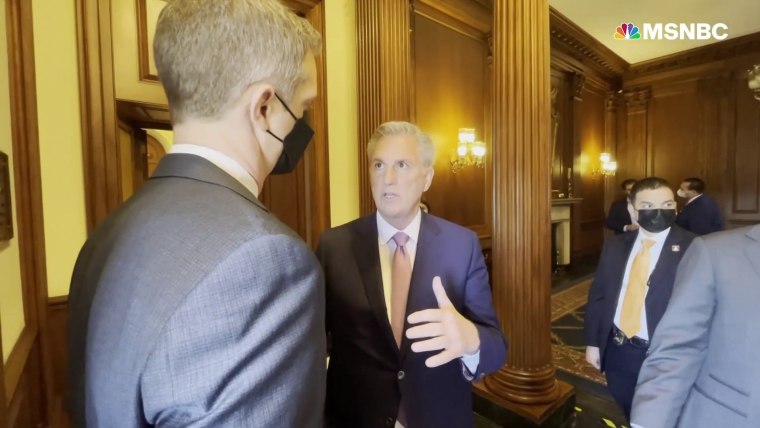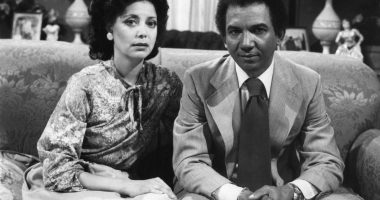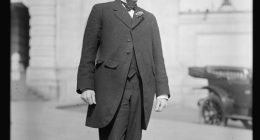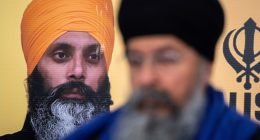It’s easy for advocates for good government to hate Senate Minority Leader Mitch McConnell. Many argue the Kentucky Republican bears responsibility for twisting and distorting Senate rules and procedures to Republicans’ benefit in a profoundly undemocratic way.
McConnell deserves more credit for standing up for principle and breaking with his party over his decades in Washington than his critics like to admit.
After all, when McConnell was majority leader in 2016, he ignored the nomination of President Barack Obama’s final Supreme Court pick, Merrick Garland, only to move on confirming President Donald Trump’s third high court nominee, conservative jurist Amy Coney Barrett, weeks before the 2020 election.
And many Democrats still smart from McConnell’s October 2010 quip that his top priority was for Obama “to be a one-term president.” The seemingly craven and callous comment came across as lacking even a veneer of statesmanship or deference to the will of the American people for bipartisan leadership. (His wish wasn’t granted when Obama won re-election in 2012.)
But McConnell deserves more credit for standing up for principle and breaking with his party over his decades in Washington than his critics like to admit. And at no moment was he more deserving of credit than Tuesday for his rebuff of the Republican National Committee’s own craven distortion: calling the violent attack of the capital on Jan. 6, 2021, an appropriate political demonstration.
McConnell turned heads when he frontally challenged the RNC over its adoption of a resolution to formally censure two party members — Reps. Liz Cheney of Wyoming and Adam Kinzinger of Illinois — for participating in the House committee investigating the Capitol attack by supporters of then-President Donald Trump. The RNC resolution accused the House GOP pair of “participating in a Democrat-led persecution of ordinary citizens engaged in legitimate political discourse.”
McConnell strongly disagreed when asked for his view on the resolution.
“We all were here. We saw what happened. It was a violent insurrection for the purpose of trying to prevent the peaceful transfer of power after a legitimately certified election, from one administration to the next. That’s what it was,” McConnell told reporters.
He went on to chastise the RNC for “singling out members of our party who may have different views than the majority. That’s not the job of the RNC.”
It wasn’t the first time McConnell has taken a dissenting view from Republican power centers. His 37-year Senate career shows a willingness to sometimes buck his own party’s stances on policy issues and political tactics, even when it’s set him apart from GOP presidents and Republican voters. It’s a history conveniently forgotten by political opponents looking to make him a boogeyman, but it’s worth recalling given that McConnell right now is the most powerful Republican in America challenging Trump’s 2020 election revisionism and the effort to disrupt the peaceful transfer of power at the heart of America’s experiment in democracy.
McConnell’s selective party defiance goes back to his early days in the chamber. He took office in January 1985 having beat a Democratic incumbent by just over 5,000 votes out of nearly 1.3 million votes cast — in no small part on the coattails of President Ronald Reagan’s 49-state re-election romp and Kentucky win with 60 percent of the vote.
So McConnell had little political incentive to buck the president’s administration. But McConnell did just that in April 1985. In his maiden Senate floor speech, McConnell espoused sanctions on the apartheid government of South Africa, which the Reagan administration considered a Cold War-era ally. In October 1986, when Reagan sported a 67 percent national approval rating, McConnell voted to override the president’s veto of legislation imposing economic sanctions on South Africa, calling him “ill-advised” and “wrong.”
McConnell was otherwise largely a Republican loyalist as he built seniority on Senate committees and climbed the leadership ranks. But he would continue to challenge his own party at key moments, even on a culture war issue that resonated deeply with Republicans: the burning of the American flag.
The Supreme Court ruled in 1989 that the First Amendment protects protesters who burn flags. McConnell was among the few Republicans to vote, over decades, against a repeatedly proposed constitutional amendment outlawing the practice. And in November 2016, McConnell rhetorically pushed back on President-elect Donald Trump’s suggestion that people who burn the American flag should lose their citizenship.
Trump’s presidency would prove another case of McConnell not always toeing the Republican line, even when that was the most politically advantageous thing to do. Throughout the first two years of the Trump presidency — when Republicans had complete control of the federal government — McConnell resisted pressure from Trump to end the filibuster. That would have allowed Republicans to pass their agenda through the Senate with a simple majority, not the 60-vote threshold the filibuster demands.
None of this is to suggest McConnell’s motives in criticizing the RNC censure resolution are pure. They have a double-edged benefit as a reminder that the RNC is subordinate to the Senate Republican Conference and that lawmakers call the shots on top political matters — a point McConnell made none-too-subtly Tuesday.
“With regard to the suggestion that the RNC should be in the position of picking and choosing Republicans who ought to be supported, traditionally the view of the national party committees is that we support all members of our party regardless of their positions on some issues,” McConnell said. (Essentially, the RNC is not a possession of Trump and his adherents.)
Still, it was noticeably less politically expedient than the response of House Minority Leader Kevin McCarthy of California to the RNC resolution. When pressed by an NBC News reporter Tuesday, he made an obligatory condemnation of the Jan. 6 Capitol violence — but said the RNC was being misinterpreted as defending the Capitol riot and then he effectively endorsed the censure of Cheney and Kinzinger.
McConnell’s defiance of the RNC’s revisionist history of Jan. 6, absolving of blame violent rioters trying to overturn the 2020 election Trump lost, is notable and laudatory. And it is in line with McConnell’s history of going his own way from time to time. The present moment, with democracy imperiled by Trump supporters peddling lies that the former president had the election stolen from him, makes McConnell an especially important voice. It makes him the highest-level GOP officeholder to push back against Trump’s total control of the party. It also puts him on the right side of history.
Source: | This article originally belongs to Nbcnews.com

